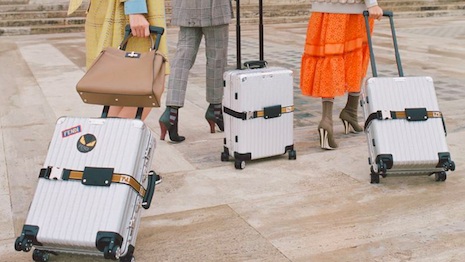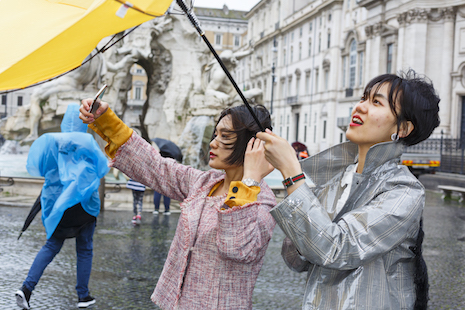 Younger affluents consider travel a way of self-expression. Image credits: Rimowa
Younger affluents consider travel a way of self-expression. Image credits: Rimowa
NEW YORK – Although a new wave of wealthy consumers has embraced technology to a greater degree than its predecessors, most are pursuing real experiences, freedom and happiness.
Presenting at Luxury FirstLook 2019 on Jan. 16, an executive from Publicis Groupe’s Team One shared insights about the different values today’s affluents are embracing. The agency has been studying wealthy populations for decades to assist its luxury clients in reaching tastemakers.
“The way we’re dealing with brands, with each other, with culture at-large has completely changed,” said Joanna Young, managing director of strategy at Team One, Los Angeles. “With that, it’s an absolutely new culture that’s happening – it’s not even a new economy.”
Luxury Daily produced Luxury FirstLook 2019: Digital Acceleration
Personal freedoms
The top 10 percent of income earners consistently works towards achievements, such as acquiring degrees or entrepreneurial pursuits. Affluents are not afraid of working hard, but they are afraid of wasting time, according to Ms. Young.
Time is one asset that is nonrenewable, and today's wealthy are looking for brands that make their lives easier and also help them get the most out of their free time.
Time is not a limitless resource, even for the affluent. Image credit: Gucci
Another shifting value among affluents is mobility.
While travel used to be a marker of a wealthy individual, leisure trips are available to a greater number of people than ever before. As a result, travel is now looked at a way of self-expression and personal growth.
Almost three-quarters, 72 percent, of affluents feel at home anywhere in the world, according to Team One's 2018 Quantitative Panel in partnership with YouGov.
“Travel is a way to differentiate yourself,” Ms Young said.
Younger affluents are also motivated by a desire to help build a better world. They measure their success by influence and impact.
Affluents want luxury brands to have more substance and reflect their personal values. Image credit: Booking.com
On a related note, they also want substance reflected in luxury. Ninety-three percent of affluents believe “luxury needs to have substance over flash.”
Viewing themselves more as patrons than consumers, this new class of wealthy also appreciates customization, craftsmanship and brand values.
The younger wealthy prefer brands that emphasize storytelling so they can form meaningful connections to companies. Team One found that 81 percent of global affluents enjoy brands and products with interesting stories, compared to 66 percent of the general population.
Luxury values
One of the most important values among millennial and Generation Z consumers is sustainability.
Sustainability has become a necessity rather than an option for luxury, changing how brands approach all aspects of their businesses.
The luxury business is often a trendsetter, allowing high-end companies to have an impact that extends beyond their own operations. Sustainability is not just beneficial for the environment and people; it is also good for business (see story).
Millennials’ sustainability motivations are good news for luxury brands, allowing marketers to stress the idea of buying fewer, higher quality goods.
One of the attributes that differentiates the millennial age group from prior generations is their desire to buy merchandise that reflects their values, including wellness and environmental friendliness. With consumers tiring of constant consumption, luxury brands can leverage this to stress the importance of investing in their brands (see story).
“Luxury is not a necessity [for today's affluents],” Ms Young said. “They choose to have it.”


